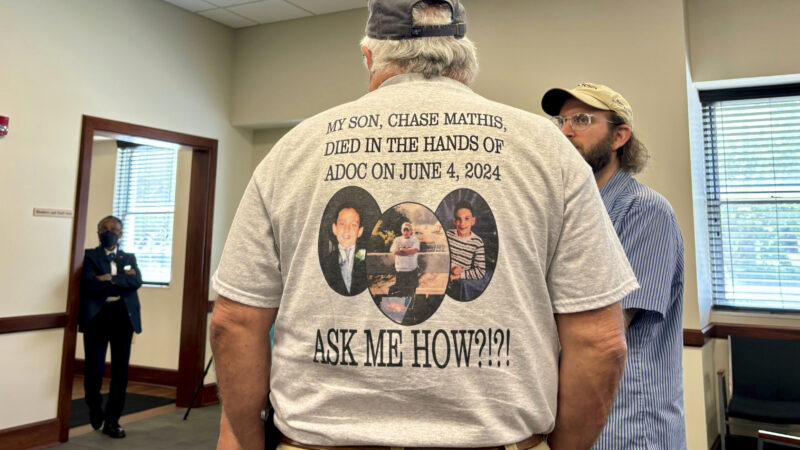UAB Leads a New Anti-Viral Drug Trial to Combat the Coronavirus
The University of Alabama at Birmingham is leading a new anti-viral drug trial in Wuhan, China to combat the coronavirus outbreak.
The World Health Organization declared the outbreak a “public health emergency of international concern” in late January. In a few weeks, the virus has killed over 1,000 people and infected more than 40,000 people worldwide.
The placebo-controlled trial will test the safety and effectiveness of the anti-viral drug remdesivir. It’s part of a study led by UAB to treat high-priority emerging infections such as the flu, Zika virus, dengue fever and 2019-nCoV, better known as the coronavirus. UAB is working with Gilead Sciences and nearly a dozen other universities across the U.S. as part of a five-year $37.5 million grant from the National Institute of Allergy and Infectious Diseases.
Dr. Richard Whitley is the lead researcher and distinguished professor of pediatrics at UAB. He says they’ve tested the drug on a few patients in the U.S., but the trial in Wuhan is the first time they’ll test it on large numbers of people.
“The drug has been released on what we call a compassionate plea basis for a few patients in the United States who were sick. And those patients all did well,” Whitley says. “But we don’t know whether it was the effect of the drug or the natural healing process that took place in those patients. So we need the data from this controlled study.”
Whitley says about 400 people in Wuhan will be part of the trial. He says the Federal Drug Administration authorized use of the drug in clinical trials after it was used to successfully treat MERS and SARS in animal models. MERS and SARS are viral respiratory illnesses caused by the coronavirus.
Whitley says as of right now researchers aren’t using mortality rate as a benchmark to determine whether remdesivir effectively treats the coronavirus. Instead, he says they’ll track whether it works based on the resolution of respiratory illness and the prevention of complications from a respiratory illness.
But Whitley warns that like the flu, the coronavirus can mutate.
“So what we have to be careful of is that we have backup drugs that can be used in case patients develop resistance to remdesivir,” Whitley says.
Whitley says they’ve been working with Southern Research to develop possible backup drugs they’ll begin testing on animal models. He says if those show promising results, they’ll work to get them developed as well.
Whitley says while scientists didn’t predict the magnitude of the coronavirus, he’s not surprised.
“What we need to be aware of is that the National Institutes of Health anticipated that we would see emerging infections occur in the United States and this is a classical example of it,” Whitley says. “Because of climate change we’ll see diseases like dengue. We’ve already seen West Nile virus in the United States. We’ve seen a few sporadic cases of Zika and we’ll certainly see chikungunya. So we’ve got to be prepared and that’s what we’re trying to do.”
Editor Note: UAB holds WBHM’s broadcast license but our news and business departments operate independently.
Alabama prison chief responds to families’ criticism
The department said that a number of changes have been made since Corrections Commissioner John Q. Hamm was appointed in 2022. The department said hiring has increased, and there are ongoing efforts to curb the flow of contraband and improve communications with families.
40 years after ‘Purple Rain,’ Prince’s band remembers how the movie came together
Before social media, the film Purple Rain gave audiences a peak into Prince’s musical life. Band members say the true genesis of the title song was much less combative than the version presented in the film.
Park Fire in California could continue growing exponentially, Cal Fire officer says
Cal Fire has confirmed that over a hundred structures have been damaged in the Park Fire, which grew overnight near Chico, Calif. Difficult firefighting conditions are forecast through Friday night.
Checking in with Black voters in Georgia about the election, now that Biden is out
Some voters who could be key to deciding who wins Georgia. What do they think about Vice President Harris becoming the frontrunner in the race to be the Democratic nominee?
Tahiti’s waves are a matter of ‘life and death’ for surfing Olympics
Tahiti's Teahupo'o wave has a slew of riders for the Paris 2024 Olympics. NPR finds out why it's called one of the most dangerous waves.
Researchers are revising botanical names to address troubling connotations
Since the mid-1700s, researchers have classified life with scientific names. But some of them have problematic histories and connotations. The botanical community is trying to tackle this issue.



